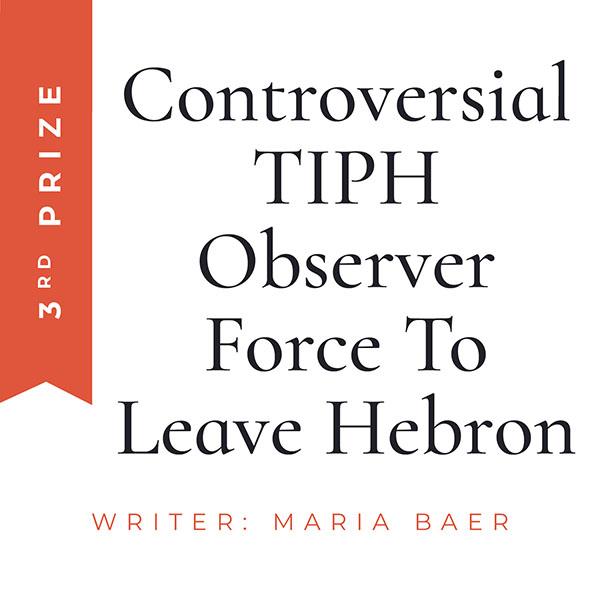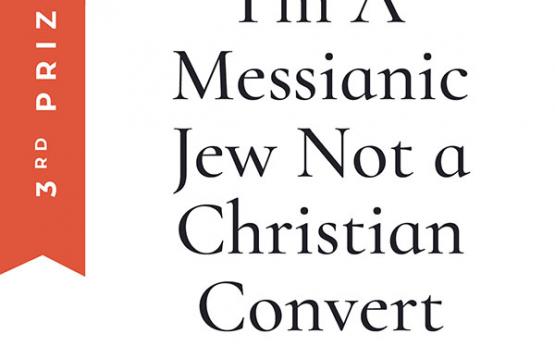
It was called the Temporary International Presence in Hebron (TIPH) – but it lasted for more than 20 years.
Israeli Prime Minister Benjamin Netanyahu announced early this week* he will not renew Israel’s agreement with the TIPH, the international force tasked with “observing” activity in the West Bank city of Hebron. The TIPH, made up of 64 observers from Switzerland, Italy, Norway, Sweden and Turkey has operated in the city for nearly 22 years under the auspices of keeping the peace but has become increasingly unpopular among the Jewish people inside and outside of Hebron.
In an official statement, Netanyahu said he would no longer “allow an international force to act against us.”
A spokesman for the Palestinian Authority pushed back, accusing Israel of reneging on its peace-keeping commitments.
THE BACKGROUND
The TIPH was originally deployed to Hebron under the Oslo Accords. Known as the Hebron Protocol, this specific agreement between Israel and the Palestinian Liberation Organization called for the majority of Israeli military forces to leave the Hebron region as the TIPH moved in. The observers, in their trademark red, white and blue uniforms, were meant to objectively watch for human rights violations in the Palestinian settled area of Hebron City, known as H1, and the small Israeli settlement known as H2. (Israelis remain the minority even in H2, as roughly 40,000 Palestinians live there among less than one-thousand Jewish people.)
Despite that population disparity, the vast majority of the TIPH’s reports of misbehavior cited Israelis as the culprits.
THE REPORT
Last year, the TIPH released a 100-page report detailing 20 years of alleged repeated violations by the Israeli military force against their Palestinian neighbors. The report is confidential and was released only to Israeli and Palestinian officials as well as the governments of TIPH’s member countries. But a confidential source spoke anonymously to the Israeli newspaper Haaretz about the report.
According to that source, the TIPH accused the small Israeli military forces that remained in Hebron City of flagrant discrimination against the Palestinians and favoritism toward the Jewish people. Many infractions involved the freedom (or lack thereof) of movement. For example, the TIPH accused the IDF of implementing bothersome security checkpoints on the Palestinian’s route to their mosque, while the roads to the Jewish synagogues were clear. The TIPH also faulted Israeli forces for allegedly using checkpoints to effectively shut down a once-bustling Palestinian marketplace.
Following Haaretz’s reporting on the TIPH report, several high-ranking Israeli politicians, mostly from the political right, criticized it as “anti-Semitic propaganda” and called for the dismantling of the TIPH.
Recent actions by TIPH employees against Israeli H2 residents also fueled Israeli anger toward the organization.
THE CONTROVERSY
Last July, an attorney for TIPH was caught on video slapping a 10-year-old Jewish boy in the face. The Swiss observer was touring an Israeli section of H2 when he hit the child, and while there was no reported reason for the assault, the Swiss ambassador to Israel said as part of his official apology that there was “no doubt … some provocation on the side of the settlers.” Nevertheless, the Swiss government forced the observer back to Switzerland.
That violent incident happened just a week after Israeli border officers ran into a Palestinian house in Hebron to administer CPR to a baby found not breathing. The officials kept the baby alive until a medic arrived.
Shortly after the slapping incident, another video surfaced showing a TIPH observer a year earlier slashing the tires of an Israeli-owned vehicle.
Brigadier General Einar Johnsen, head of the TIPH, later apologized, saying he “regretted” the incidents.
Nevertheless, the videos renewed Jewish calls for the removal of the TIPH, which Netanyahu obliged this week.
WHAT THIS MEANS
The Hebron Protocol, which authorized the on-going presence of the TIPH, was meant to be renewed by both Israeli and Palestinian authorities every six months. Now that Netanyahu has announced his intentions not to renew at the end of this month, the TIPH forces will likely be ordered back to their home countries soon.
* Editors’ Note: This article was written in response to a prompt asking the writer to react to a news event from early 2019.





